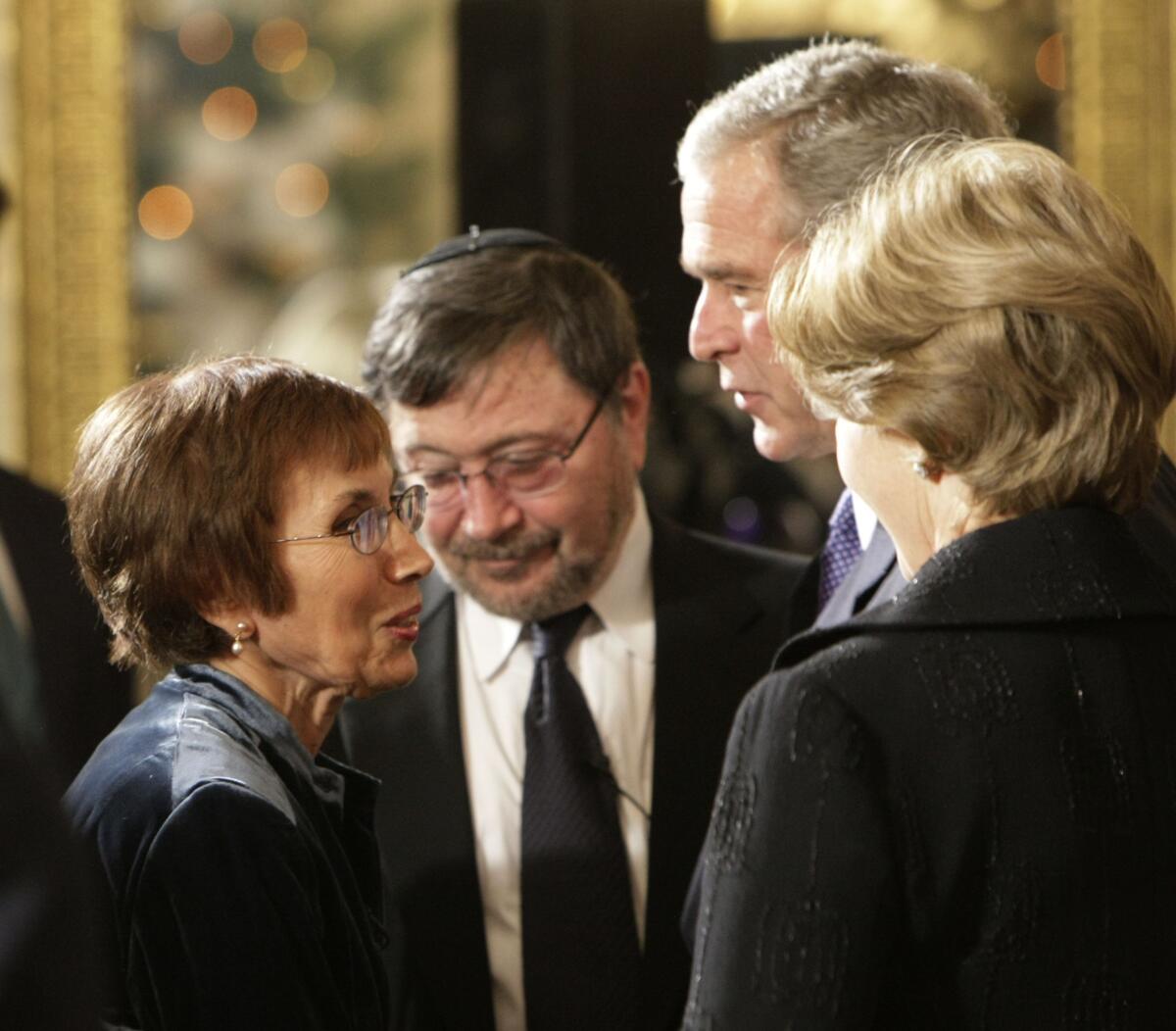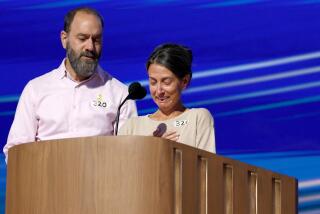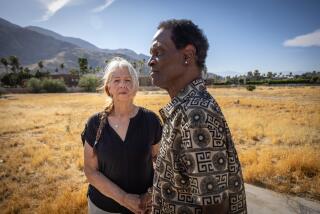Ruth Pearl, mother of slain journalist who turned her grief into activism, dies at 85

- Share via
Ruth Pearl, the mother of slain Wall Street Journal reporter Daniel Pearl who turned the profound and lasting agony of losing a son into a life of activism, outreach and bridging cultural divides, has died at her home in Los Angeles.
Pearl, who died July 20, had been suffering from pulmonary difficulties. She was 85.
After their son was kidnapped and murdered by Al Qaeda extremists while reporting in Pakistan in 2002, Pearl and her husband Judea worked feverishly to extract good from their son’s violent death by establishing a foundation in his name that offered fellowships to journalists in Muslim countries and hosted lectures, concerts and other events to promote cross-cultural understanding.
But all the while the weight of their son’s unresolved murder and the byzantine Pakistani court system was a constant undertow in their lives. The accused terrorist charged with luring Daniel Pearl to his death and three accomplices were ordered to be released in April , though they remain in captivity while the country’s judicial system grinds on.
In a final plea, Pearl — by now frail with lung disease — and her husband recorded a YouTube video in May, asking the Pakistani courts to reverse their decision. A hearing is set for late August.
“I’m sure the killers of Danny didn’t have a sense of the humanity that connects us,” she explained in an interview with the USC Shoah Foundation. “For them, Danny was an object, and that can happen only if you don’t have your own self-respect and respect for other human beings.”
Born Eveline Rejwan on Nov. 10, 1935, Ruth grew up in Baghdad in a mixed Jewish and Muslim neighborhood. When she was 6, thousands of Iraqi citizens, emboldened by Nazi propaganda, stormed the streets in an attempted coup that left 200 people dead and an entire swath of the city in fear of what was to come. When she was 15, her family was part of a mass exodus of Jews allowed to leave Iraq if they forfeited their assets and citizenship. The refugees were taken by cargo plane to Israel.
The family moved to Tel Aviv, where she enlisted in the Israeli navy and then earned a degree in electrical engineering at the Technion Israel Institute of Technology, where she met her future husband. They soon moved to New Jersey where she earned a master’s in eingineernig at what then was Neward College of Engineering. She worked in software development after they moved to L.A. Her husband was a computer science professor at UCLA.
One of three children, Daniel was a classically trained musician who made sure to take his violin case when he went off to Stanford to study journalism. He had an innate hunger to understand other cultures, a curiosity that led him to Pakistan and a fateful reporting mission to uncover Al Qaeda activities and funding.
Column: This man masterminded my friend Daniel Pearl’s abduction in 2002. He shouldn’t be set free
Pearl’s beheading opened the door to more violence against journalists. Those who abducted him should remain in prison.
He disappeared Jan. 23, 2002, while running down leads on Richard Reid, the Al Qaeda operative who tried to blow up a Paris-to-Miami flight with a shoe bomb. Three weeks later, while his parents and his pregnant wife Mariane waited with growing apprehension to hear from him, a video surfaced showing his decapitated body.
Ruth Pearl, who’d grappled with vivid and nightmarish dreams since childhood, told the Shoah Foundation that she had a dream the night her son vanished that he was in trouble and scared. She awoke and sent him an email.
“I said, ‘Danny, this is a dream that I had. Please humor me and answer this email immediately.’” she said. “He never did.”
The stop-and-go hunt for Daniel‘s killers and his family’s mounting frustration at the slow, grinding process of the investigation was chronicled in Mariane Pearl‘s memoir, “A Mighty Heart.” The book provided a blueprint for the 2007 movie of the same name, staring Angelina Jolie as Mariane Pearl and Perrine Moran as Ruth Pearl.
It would have been easy and understandable for Ruth and Judea Pearl to have simply given into the grief.
Instead, they went the opposite direction, founding the Daniel Pearl Foundation and giving journalists from the Middle East, Southeast Asia and North Africa an opportunity to work in American newsrooms. The foundation, which Pearl essentially ran as its CEO, also sponsors concerts, cultural events and annual lecture series at UCLA and Stanford to discuss tolerance and understanding.
With their encouragement, the Los Angeles Press Club began awarding the Daniel Pearl Award for Courage and Integrity in Journalism in 2002. Diana Ljungaeus, executive director of the press club, said she was preparing to call the Pearls to go over this year’s award candidates when she learned Pearl had died.
Pearl and her husband also edited the book “I Am Jewish: Personal Reflections Inspired by the Last Words of Daniel Pearl,” a collection of observations by prominent Jewish figures in government, science, the arts and journalism. The late actor Kirk Douglas was among those who contributed their thoughts on what it means to be Jewish.
Judea Pearl said his wife was a fast and firm believer in the pressing need to bridge cultural differences.
“I worry about the next generation,” Ruth Pearl told The Times in 2007. “If we don’t address this now, what will become of us? What will become of our children?”
Pearl is survived by her husband, daughters Michelle and Tamara, daughter-in-law Mariane, sister Carmella and five grandchildren, Leora, Tori, Ari, Evan, and Adam.
More to Read
Start your day right
Sign up for Essential California for the L.A. Times biggest news, features and recommendations in your inbox six days a week.
You may occasionally receive promotional content from the Los Angeles Times.







